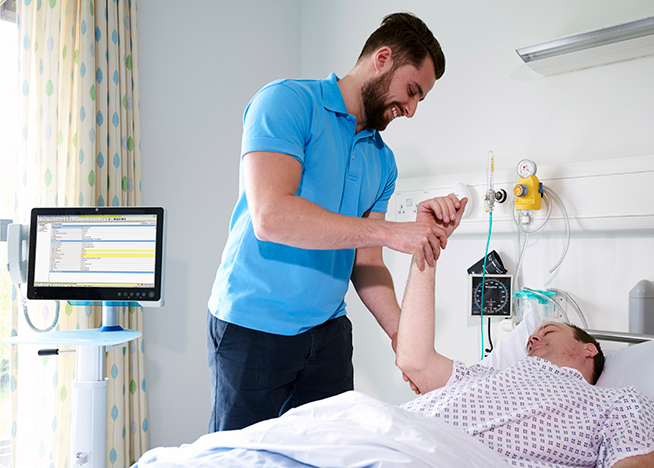Patient education is about teaching patients about their health and treatment. This helps them to better understand their condition and situation. And involves and engages them in their care and treatment plans.
Educating patients can be done in different environments – medical and non-medical. And in both formal and in-formal ways. The overall goal of patient education is to improve each patient’s health as well as the performance of the overall healthcare industry.
These are of course two very valuable benefits of patient education. But there is so much more to gain from educating your patients.
Here are 4 more patient education benefits to consider:
1. Higher Level of Patient Understanding
Patient education focuses on teaching patients and feeding them valuable information. It ensures patients are well-informed about there own health and medical situation.
What can you teach patients? Talk to them about the diagnosis and how it was made. Discuss possible treatment options and help them to prevent the condition from getting worse.
Information is power – for patients too. A high level of understanding takes away stress and anxiety and builds trustbetween patient and caregiver. And most importantly, patient education and increased understanding helps patients make informed healthcare decisions.
2. Active Patient Involvement
Proper information and education makes patients a member of their care team. Which makes them accountable too.
An educated patient may often be able to take over some parts of their care and recovery. Think about simple exercises, dietary changes and even full lifestyle changes. Of course there will always be large parts of care that need to be performed by a professional caregiver.
But there are definitely smaller elements that could be self-managed by the patient. Freeing up valuable time from their doctor’s and nurses.
3. Better Health Outcomes
Patient education helps make patients fully aware of their condition, the risks and the ways to get healthier. This offers a motivation and helps them see the goals they need to work towards, to improve their health.
An educated patient generally feels more responsible and, in line, more motivated to put in the effort. Just think about it, would you ever try to work on an issue you don’t know exists? Of course not. Patient education is not just about making patients feel better. It is about making them aware of the situation. And motivating them to move forward and actively take part in their treatment and care plan. Alongside their care team.
In the end, the right motivation will improve a patient’s general health more quickly and efficiently.
4. It Improves the Overall Healthcare System
Patient education will not only improve patients’ health, but the healthcare industry as well. If patients know what they can do to improve their health or condition, this will without a doubt have a positive effect on healthcare providers as a whole.
Patient education helps reduce the amount of re-admissions. As well as the number of unnecessary phone calls or visits. Think about the amount of time and money these patient education benefits save both patient and provider.
Have these benefits of patient education convinced you of the value of informing, involving and engaging your patients?









